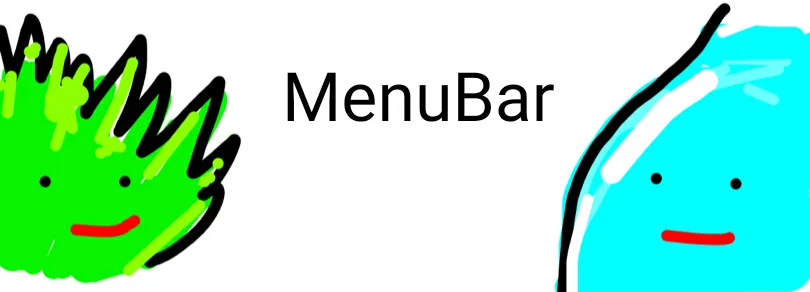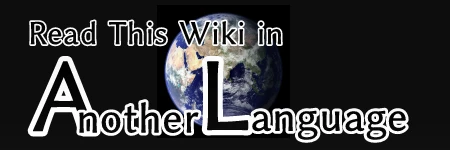This page is in the process of being created.
Please cooperate with the editing.
| Contents |
About
COVID-19 is the name given by WHO (World Health Organization) for "SARS Coronavirus 2", which caused a global pandemic from the end of 2019.
In this section, the names are unified with "COVID-19" except when dealing with names.
Name
Since this virus is known to belong to SARS-related coronavirus, the medical term severe acute respiratory syndrome coronavirus 2 (Abbreviation: SARS-CoV-2) exists. do.
WHO has established names that do not include place, names or name elements, such as "2019-nCoV" and "COVID-19", in order not to discriminate against countries, regions, people, etc. by name*1.
The reason for calling it "New ~~~~" in Japan is to follow the new infectious disease naming scheme established by WHO in 2015.
Most national media outlets call it "COVID-19".
In the former US Trump administration, COVID-19 was criticized for saying that former US President Donald Trump was a "Chinese Virus" and former US Secretary of State Mike Pompeo was a "Wuhan Virus".
In Japan, Minister of Finance Taro Aso said "That COVID-19 should be called ‘Wuhan Virus’", and members of the House of Representatives Takashi Nagao and House of Councilors Hiroshi Yamada expressed their sympathy on Twitter, which became a hot topic. It became a hot topic in.
The names of "COVID-19", which is common throughout the world, and the names of "new coronavirus" in each country are listed below.
| Names in Various Languages | |
|---|---|
| Universal | COVID-19 |
| 2019-nCoV | |
| SARS-CoV-2 | |
| English | Novel Coronavirus |
| Japanese | 新型コロナウイルス |
| German | Neuen Coronavirus |
| Latin | Novum Coronavirus |
| Korean | 신종 코로나바이러스 |
| Comparison of Kanji Cultural Areas | |
| Japan | 新型コロナウイルス |
| China | 新型冠状病毒 |
| Korean | 신종 코로나바이러스 |
Social Impact of Viruses
Discrimination Against Countries / Regions / People
Discrimination by the Name of COVID-19 Itself
WHO includes elements of place names and names such as ""2019-nCoV"" and ""COVID-19"" in order to "do not discriminate against countries, regions, people, etc. by name". No name has been established.
In the former US Trump administration, COVID-19 was criticized for saying that former US President Donald Trump was a "Chinese Virus" and former US Secretary of State Mike Pompeo was a "Wuhan Virus".
In Japan, Minister of Finance Taro Aso said "that COVID-19 should be called "Wuhan Virus"", and members of the House of Representatives Takashi Nagao and House of Councilors Hiroshi Yamada expressed their sympathy on Twitter, which became a hot topic. It became a hot topic in.
In addition, there are cases of mental distress due to the fact that the name contains the element of COVID-19*2.
Discrimination Due to Virus Infection
The following cases of discrimination have been raised due to infection with the virus.
- Dismissed for being infected
- Rejected to work even though he is recovering
- Children are denied access to nursery centers because of infected people at the hospital
- Refuse to visit school students and their families who have been infected
- Identify the name and behavior of the infected individual and publish or blame them on SNS etc.
- Apology and compensation are forced from stores visited without symptoms and awareness
As a result, a new law, "Law to partially revise the Law on Special Measures for New Influenza, etc.", was enacted and came into effect on February 13, 2021.
Therefore, the above actions are treated as a violation of the law.
Restrictions on People's Behavior
WHO Declaration of "Public Health Emergency of International Concern", Raising "Global Risk" to "Very High" and Declaration of "Pandemic" by WHO Secretary-General Tedros Adhanom
On January 31, 2020, WHO declared "Public Health Emergency of International Concern''(=PHEIC).
On February 28, the same year, WHO raised the "global risk" to the highest level "very high", concerned about the global epidemic of COVID-19.
On March 11, the same year, WHO Secretary-General Tedros Adhanom announced that the COVID-19 infection status was "pandemic-equivalent", deviating from WHO standards.
Legal Measures Such as Lockdown
In various countries, "lockdown" is carried out according to the virus infection status.
Lockdown is legally binding, and we will take measures against infection by tightening restrictions such as prohibition of all employees of the company from going to work, prohibition of in-store business of citizen restaurants, and total closure of schools*3.
We are requesting*4 the people and citizens to maintain a Social Distance with others*5.
However, in Japan, lockdown is not possible by law*6.
In Japan, the lives of the people are protected by a method called "State of Emergency."
Reference Pages
- SARSコロナウイルス2 - Wikipedia
- 新型コロナウイルス - Wikipedia
- 新興感染症の正しい名付け方 - OSAKA Medical association
- スペインかぜ - Wikipedia
- トランプ氏、新型ウイルスは「中国ウイルス」 中国は反発 - BBC News
- 麻生氏 “また”差別助長発言/新型コロナを「武漢ウイルス」/WHO方針は“地名を用いず” - Shimbun Akahata
- 「ころな君」負けないで 名前に悩む8歳に警察OBらが応援歌 - Tokyo Shimbun
- 新型コロナウイルス感染症に関する偏見や差別を防止するための規定が設けられました! - Ministry of Health, Labour and Welfare
- 国際的に懸念される公衆衛生上の緊急事態 - Wikipedia
- 新型コロナウイルス感染症の世界的流行 (2019年-) - Wikipedia
- 新型ウイルスの世界的危険度、最高レベルに引き上げ=WHO - BBC News
- ロックダウンされた海外の日常… 米の87%が外出制限、インドは物流滞り混乱 - Mainichi Shimbun
- 国によって距離が違う?!世界各国のソーシャルディスタンスと町の変化【海外調査】 - PR TIMES
- 第74回 なぜ日本はロックダウンをできなかったのか? - Humony International
Comment
Number of Viewers
| Today | ? |
| Yesterday | ? |
| Total | ? |
Tag
Tag: COVID-19

